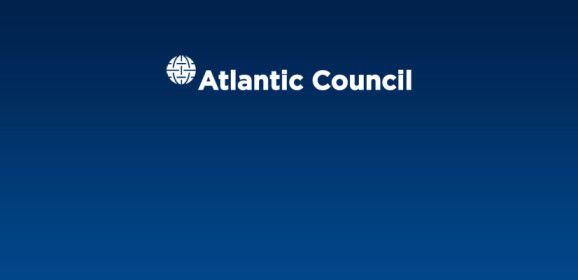Section: Atlantic Council (USA)
The Real History of the Ukrainian Nation: A Review of “The Gates of Europe”
During a time of war, history becomes a weapon used to justify claims and raise soldiers’ spirits. In this case, successful histories are simple, unequivocal, and confirmed by the experiences of past centuries.The current Kremlin version of history of the relationship between Russia and Ukraine fully meets these criteria. According to...
Ukraine Should Do More to Combat Human Trafficking
Ukraine remains one of Europe’s most notorious sources of human trafficking. Since 1991, over 160,000 men, women, and children have been exploited for labor, sex, forced begging, and organ removal, according to a mid-2015 report from the International Organization for Migration (IOM).Ukraine’s Ministry of Social Policy, with...
2016 Will Be a Make It or Break It Year for Ukraine
Two years ago, hundreds of thousands of Ukrainians braved the freezing temperatures on Kyiv’s Maidan to protest. Since then, Ukraine has gone through almost too many crises to count: upheaval with the ousting of former President Viktor Yanukovych; Russian occupation of Crimea; a war with Russian forces in the Donbas that continues to...
How Ukraine’s Prosecutor General Sabotaged the Reform Process
Viktor Shokin, Ukraine’s prosecutor general, was upbeat in his New Year’s message to colleagues. While “2015 was a difficult and responsible year for us all,” he wrote, we “carried out unprecedented reform and overhaul of the prosecutor’s system, bringing it closer to European standards.” Almost thirty...
Ten Reasons Why I’m Optimistic About Ukraine’s Economy in 2016
The outlook for the Ukrainian economy in 2016 is positive. Many important reforms were carried out in 2015. The necessary exchange rate adjustment has occurred and most required bank closures have taken place. The parliament has adopted tax changes and a decent budget for 2016. The debt restructuring deal has postponed foreign debt service. The...
Putin’s Next Potential Target: The Baltic States
Although Russia’s economy is reeling and its military forces are increasingly engaged in Syria and Ukraine, NATO commanders, governments, and analysts are concerned that Russian President Vladimir Putin’s adventurism has not run its course. Most anxieties focus on the Baltic states as Russia’s next potential military...
From Ordinary Business Trip to Russian Jail: Former Ukrainian Political Prisoner Exhorts West to Keep Pressure on Russia
Editor’s Note: Yuriy Yatsenko testified before the US Helsinki Commission in Washington on December 11, 2015. His remarks have been shortened.I am a Ukrainian citizen who was illegally arrested and detained by the Russian Federation for over a year for political reasons. Nadiya Savchenko, Oleg Sentsov, and others who are less known have...
What Will 2016 Mean for Ukraine?
In 2015, Ukraine proved it wasn’t a pushover. The country united in the face of Russian aggression and Russian President Vladimir Putin learned that if he wanted his Novorossiya project, it was going to cost him more than a few little green men.Notably, the war in Ukraine was completely absent from Putin’s December 2015 address to the...
New Russian Management of the Donbas Signifies Putin May Be Ready to Negotiate
On December 26, Russian President Vladimir Putin appointed one of his close, trusted aides, Boris Gryzlov, Russia’s representative in the Trilateral Contact Group on Ukraine, which concluded the two Minsk agreements on the Donbas in September 2014 and February 2015. This appointment suggests an important change in Russia’s policy...
Civil Service Reform May Revolutionize Ukraine
It took a staggering sixteen months and it wasn’t easy. The old guard resisted it every step of the way. Ukraine’s parliament passed civil service reform, one of the highest priorities of the Euromaidan’s young reformers, on December 10.The Reanimation Package of Reforms (RPR), a civic group, described the development as...



